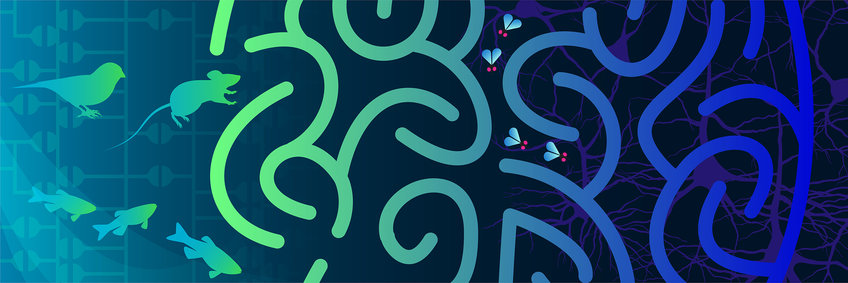
Learning and Memory
An important aspect of biological intelligence is the ability to acquire knowledge, apply it at the right time and thereby gain an evolutionary advantage. To do so, animals need a powerful brain that processes and stores information, compares new impressions with past experiences and derives appropriate behaviors. Some behavioral patterns are available from birth, while others must be learned. We investigate the cellular processes and biological structures that enable organisms to store information and retrieve it later.
Learning with all the senses
One focus of our research is how birds learn their songs. We use a wide range of methods to investigate the fundamentals of this process – from the evaluation of individual songs to the analysis of the underlying neuronal circuits. For example, we study the connections between auditory and motor memory and how social learning in groups occurs.
Learned information must also be remembered and applied appropriately to the respective situation. For example, we investigate how mice recognize the tastiness of foods and how this affects their feeding behavior; or how parrots and crows remember their own actions and use their knowledge to find flexible and innovative strategies to solve tasks.
Links and shortcuts
Storing new experiences as well as forgetting information are reflected in the connections between neurons. We can observe the dynamic restructuring of the brain and the flow of information between nerve cells with microscopes, sometimes even in real time. To better cope with the daily flood of information, the brain sometimes uses 'shortcuts' in data processing. It prioritizes certain pieces of information or assigns them to previously learned categories, which increases processing speed. We study the brain structures and cells that enable such processes. Elucidating these basic principles can help us to better understand learning, memory and perhaps also learning impairments.
Recent research on this topic:
Departments and groups working in this area:
 Tobias Bonhoeffer |
 Henrik Brumm |
 Lorenz Fenk |
 Manfred Gahr |
 Oliver Griesbeck |
 Rüdiger Klein |
 Daniela Vallentin |
 Auguste von Bayern |


